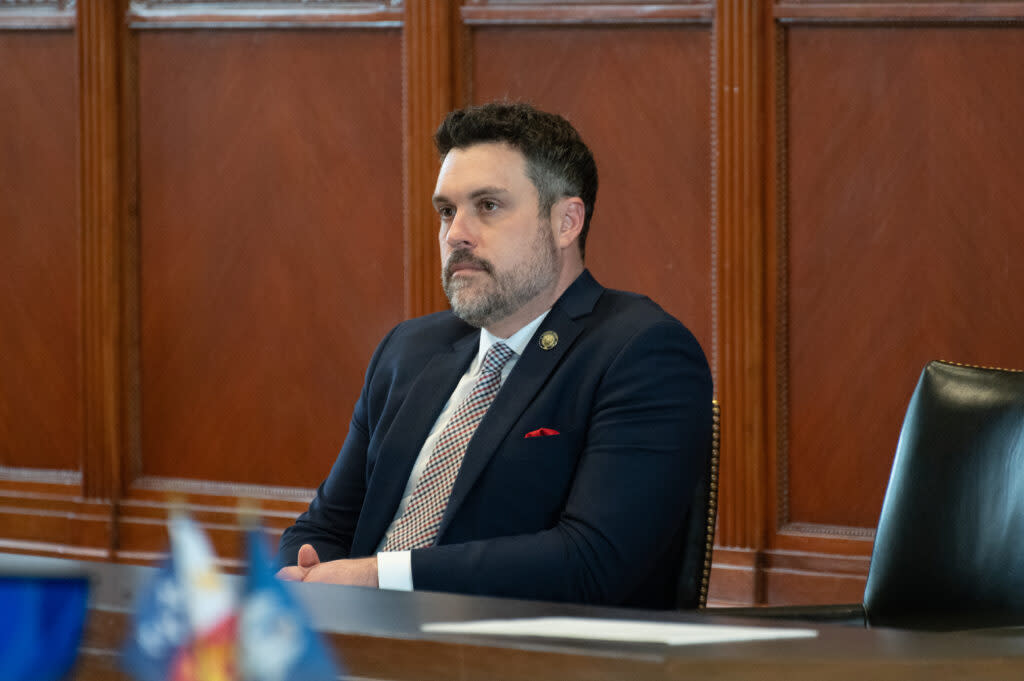Student aid for formerly incarcerated people stripped from workforce bill

- Oops!Something went wrong.Please try again later.
The Louisiana Senate Education Committee stripped out language allowing those convicted of violent crimes to access state funds for high-demand workforce programs from an aid expansion bill. (Allison Allsop/ Louisiana Illuminator)
Louisiana lawmakers have stripped out language from a proposal that would have allowed people convicted of violent crimes to access state assistance for high-demand workforce programs once they’ve completed their sentences.
The Senate Committee on Education met Wednesday and advanced an amended version of House Bill 728 by Rep. Paula Davis, R-Baton Rouge, that lowers the age of eligibility for the M.J. Foster Promise Program. The financial aid program helps students pursue associate degrees and short-term credentials in a high-demand occupations. Davis’ proposal would change the qualifying age from 21 to 17.
In its original state, the bill also would have allowed those convicted of violent crimes to access the program. It sailed through the House with little objection and enjoyed support from a variety of organizations, including the powerful Louisiana Association of Business and Industry (LABI) and the Louisiana Parole Project, a nonprofit that aids the formerly incarcerated.
Davis’ bill ran into problems Wednesday when Sen. Blake Miguez, R-New Iberia, took issue with giving state funding to those convicted of violent crime and insisted the language come out of the bill.
Proponents of the original version of the bill have said education is an important tool for reducing recidivism. LABI voiced its support Tuesday to provide access to vocational training for the formerly incarcerated.
“Building a strong foundation for the successful reentry of ex-offenders is critical to addressing Louisiana’s persistent workforce shortage and high crime rate. Studies have shown that employment is the best way to slow the revolving door of recidivism, ultimately reducing crime,” LABI posted on X, the platform formerly known as Twitter.
Davis’ bill next goes before the full Senate for a vote and will have to return to the House for approval of the Senate committee amendment.
GET THE MORNING HEADLINES DELIVERED TO YOUR INBOX
The post Student aid for formerly incarcerated people stripped from workforce bill appeared first on Louisiana Illuminator.

